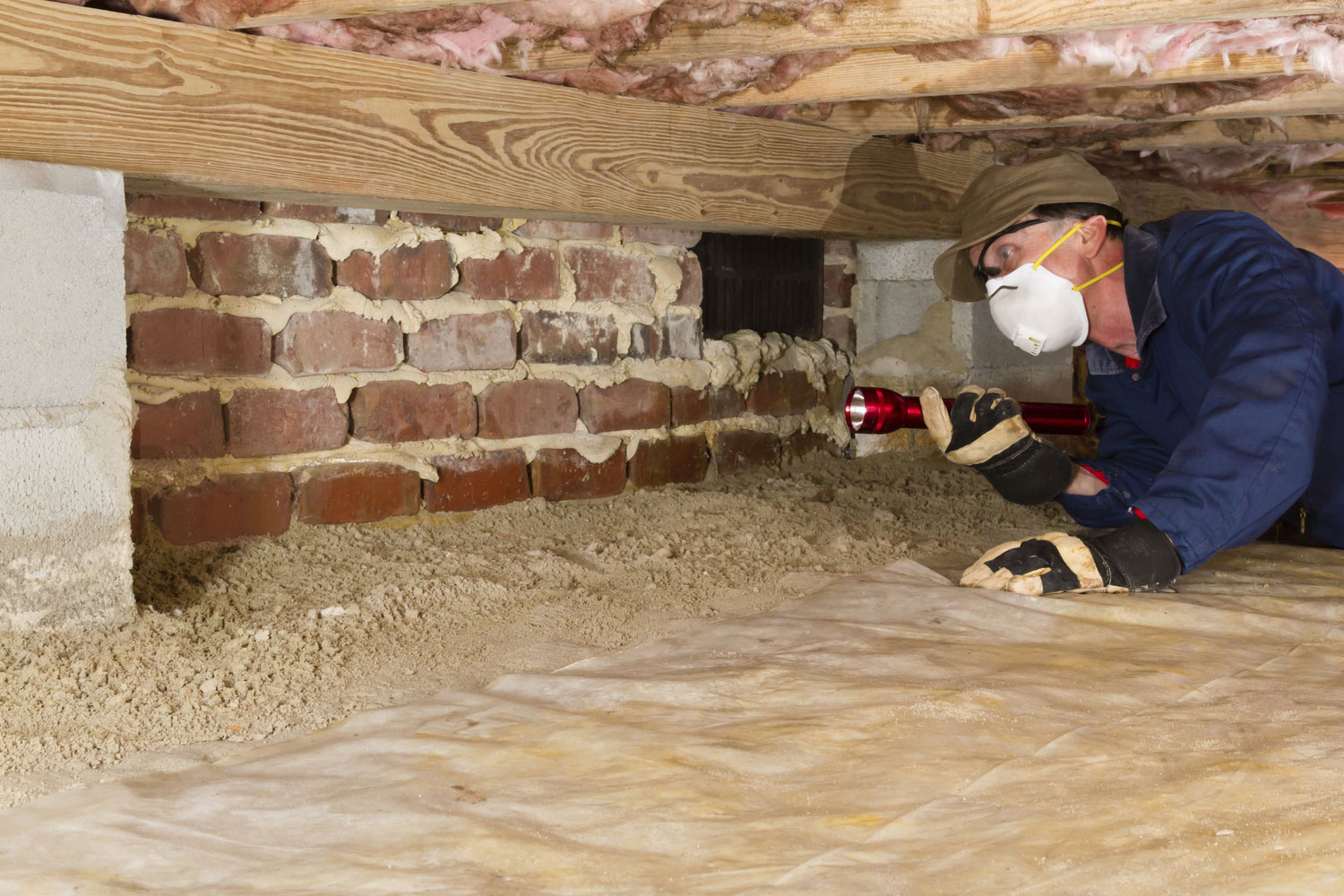Basement Inspections in Louisville, KY
GET A FREE QUOTE
Basement Inspections in Louisville, KY

Basement Inspections for Real Estate Transactions are necessary when buying a home. Consider hiring a basement waterproofing contractor to take care of that. One of the most common problems found in a house is leakage in the basement. Many home inspectors call upon Aqua Lock to evaluate water in and around the foundation of the home. If there are any signs of water, we make recommendations and have all the necessary know-how to repair basement water issues, big or small.
How Do Aqua Lock Basement Waterproofers Work?
There are several steps we take to waterproof your basement, and our team will recommend the right solution depending on your needs.
Crack Repair using Liquid Rubber Technology
Our basement waterproofing technology and process are environmentally friendly and cost-effective. The best thing about liquid rubber technology is that it has over 800% elasticity. This waterproofing membrane expands when it needs to and will not dry out. It can be applied as a sealant to most surfaces—concrete, wood, and even rusty metal. We can help you waterproof almost any surface, including your leaky basement, roofs, decorative ponds, fountains, and more.
Exterior Perimeter Drainage Systems
Installing an exterior drainage system at an existing home or building is the most effective basement waterproofing solution. This requires digging up the area around the foundation and rebuilding it in a way that is similar to a new house installation. Waterproofing sealants are installed when the foundation is exposed, and any repairs to the foundation are made. Drain tile can be placed around the perimeter of the house. A minimum of 12 inches of coarse aggregate should be placed around the drain tile. All exterior drainage systems must direct water away from the foundation.
Interior Perimeter Drainage Systems
Installing an interior drainage system in an existing basement can be one of the most effective basement waterproofing solutions. This requires opening a drainage trench around the inside perimeter. We then install a sub-floor drainage system which directs water to an installed sump pump. Finally, new concrete is poured to top off the trench and complete the installation.
Wall Stabilization
Basement walls are the very foundation of your house, but bowing walls can cause basement flooding. There are many reasons why basement walls bow, but the most important factor in the stability of a house’s foundation is the soil and water around it. Soils in Kentucky contain clay, which can contract and expand based on the amount of moisture in it. When clay is saturated with water, it expands and creates additional pressure on a basement wall. Poor drainage will cause wet walls and create a need for basement waterproofing and stabilization.
What Can I Do to Help Waterproof My Basement?
For an existing house with a wet basement, a number of issues ought to be addressed before any drainage system or basement waterproofing process is installed.
First, make certain the grade is pitched away from the home to drain away surface water effectively. The grade should not be closer to the siding than six inches because of rot and termite issues. Next, extend the outlets of the downspouts away from the home and keep gutters totally free of debris to help keep water away from the foundation. Install a wire strainer over the downspout where leaves and twigs from nearby trees may collect in a gutter. Also, consider covering the outlet or place screening across the length of the gutter.
Seed the wet area with a hearty, strong lawn grass. Even better, sodding is a common practice and prevents the washing away of newly graded areas during heavy rains. If the area is wet, there is a much better chance that the roots of the sod will grow and the grass will become strong.
Tape a 12-inch square of aluminum foil to a damp wall to determine whether the water is seeping in from the outside or condensing inside. Seal all four sides to make the surface behind the foil as airtight as possible. After two days, check to see if the foil’s side against the wall is wet. If the outside is wet (basement side), it’s a condensation issue; if the inside is wet (wall side), it is a seepage issue.
From poured concrete foundations to monolithic, stone, block, or tile basement walls, no concrete basement is secure from water leaking through the basement walls, floor, and floor joists before entering your house. After fixing hundreds of wet basement issues, the staff, technicians, and waterproofing specialists at Aqua Lock have seen it all, and we recognize how damaging a concrete basement water issue can be to your house, well-being, and possessions.
A house is among the greatest investments that a person can make, and permitting an entire floor’s worth of space to become flooded will immediately ruin the value and also the resale of your house. Dry basements may be used as storage space or finished to create a warm, beautiful new living area.
Basement Inspection Questions
Does my seller's disclosure indicate basement water damage?
A seller’s disclosure does not always indicate basement water damage. A seller might not know the basement has water or water damage. It is wise to schedule a basement inspection when buying a new home.
How can I know if I need a basement inspection?
A basement inspection might be needed if your home is exhibiting some of the signs listed below:
- Stains around cracks in a wall or floor
- Unpleasant odor
- Excessive insects
- Dampness or stains on the carpet
- Efflorescence (salt deposits) on basement walls
- Signs of mold or mildew
- Rust stains on floors and carpet
- Rusty nails on baseboards
- Rust on electrical boxes
- Stains on wood or darkening wood
If you notice any of these signs, it is important to contact a professional basement inspector to assess the situation. The inspector will be able to determine the underlying cause of the issues and recommend the appropriate remediation solutions. It is crucial to address any problems in the basement promptly to prevent further damage to the structure of the home and ensure the health and safety of its occupants.
What are the signs of water damage or moisture issues in the basement?
The signs of water damage or moisture issues in a basement can vary, but some of the most common indicators include a musty or damp odor, visible mold growth, water stains on walls or floors, peeling paint or wallpaper, and warping or buckling of wood materials. Other signs may include efflorescence, rust, or corrosion on metal fixtures or appliances. Additionally, frequent or unexplained water pooling on the floor, especially after heavy rainfall, can strongly indicate moisture problems in the basement.
Can a basement inspection detect hidden structural issues?
A basement inspection can help detect hidden structural issues within a home. Basements are a key area that can reveal signs of foundation problems, water damage, mold growth, and other structural issues that may not be immediately visible to the naked eye. During a basement inspection, a professional inspector will look for various signs of cracking, bowing walls, uneven floors, water damage, and other indicators of structural problems.
By thoroughly examining the basement, inspectors can identify potential issues before they escalate into major problems that could compromise the structural integrity of the home. This proactive approach can help homeowners address any necessary repairs to ensure the safety and stability of their homes.
Do I need to prepare my basement before inspection?
Although it’s not completely necessary, it’s a good idea to prepare your basement before an inspection. Doing so can help ensure a smooth and successful process. You can prepare your basement for an inspection by decluttering the space, repairing any visible damage, and ensuring that all necessary documentation, such as permits and receipts, is available.
Additionally, preparing the basement beforehand can help the inspector access all areas of the space easily and efficiently, ultimately leading to a more comprehensive and accurate inspection. Overall, preparing the basement before an inspection can help homeowners identify and address any potential problems before they become costly or challenging to rectify.
Will inspectors check for Radon gas during the inspection?
Radon gas is a colorless, odorless, and tasteless radioactive gas that is naturally present in the environment and can seep into homes through cracks in the foundation. However, it is important to note that home inspectors typically do not include radon testing as part of their standard inspections. This is why homeowners should consider hiring a certified radon testing professional to assess radon levels in their basement.
Radon exposure is a serious health concern, as it is the second leading cause of lung cancer after smoking. Homeowners must take the necessary steps to test for and mitigate radon gas levels to ensure a safe living environment.
Can I negotiate repairs based on the findings of the basement inspection?
Yes, you can negotiate repairs after a basement inspection. Once you receive the inspection report and any issues or concerns are identified, you can discuss these findings with the inspector. Then, you can negotiate with the seller or their real estate agent to come to an agreement on who will be responsible for fixing any necessary repairs.
This negotiation process may involve discussing the cost of repairs, the timeline for completing the work, and any potential compromises that can be made to ensure that both parties are satisfied. Ultimately, open communication and a willingness to compromise are key in successfully negotiating repairs after a basement inspection.
What qualifications should I look for in a basement Inspector?
When looking for a basement inspector, you should seek out someone with relevant qualifications and experience in the field. First, the inspector should be certified by a reputable organization, such as the International Association of Certified Home Inspectors (InterNACHI) or the American Society of Home Inspectors (ASHI). This ensures that the inspector has met specific standards of knowledge and professionalism.
Additionally, it is also important to look for an inspector with specific experience in inspecting basements, as well as knowledge of common issues such as moisture infiltration, mold growth, and foundation problems. Finally, it’s important to find an inspector who is thorough, detail-oriented, and able to communicate their findings clearly in a comprehensive report.
